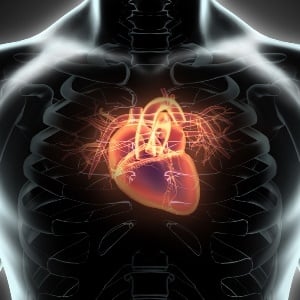
It's not how much HDL cholesterol you have, it's how active it is, a new study suggests.
Researchers at the University of Pennsylvania School of Medicine say they have found a link between atherosclerosis and the effectiveness with which the high density lipoprotein (HDL) compound draws cholesterol from the macrophages in the plaques that narrow blood vessels.
The finding, in the New England Journal of Medicine, has no immediate clinical implication because the test is too cumbersome for widespread use, Dr Daniel Rader, who led the study, said.
But it may explain why HDL levels don't correlate directly with myocardial infarction risk.
Not as protective as should be
"HDL is not always as protective as should be," he said.
The study was done "to test the idea that HDL function may be more important than just the HDL level," Dr Rader said. "We were interested to see that, in fact, that seemed to be the case."
To measure the cholesterol efflux capacity of HDL, researchers took blood samples from 203 healthy people who underwent assessment of their carotid intima-media thickness, 442 patients whose coronary artery disease had been confirmed by angiography, and 351 controls.
Each sample was stripped of LDL and put on macrophages packed with cholesterol. After four hours, investigators measured the ability of the HDL to draw out that cholesterol.
Good at removing cholesterol
Blood samples from patients with high HDL levels were good at removing cholesterol, but in some cases the HDL was particularly efficient.
People with the active HDL were less likely to show narrowing of the carotid artery or other evidence of atherosclerosis.
When the patients were divided into quartiles based on their HDL activity, those with the most activity were 60% less likely to have coronary artery disease compared to patients whose HDL activity was in the lowest quartile (p<0.001).
The inverse relationship held steady even after adjustment for age, gender, smoking, hypertension, diabetes, and levels of HDL and apolipoprotein A-1 (p=0.002).
Increased risk
"What this suggests is there are probably are people who have low HDLs but whose HDLs are quite functional, so they're not necessarily at increased risk," said Dr Rader.
The researchers found that men and smokers had a reduced efflux capacity.
"Although cholesterol efflux from macrophages represents only a small fraction of overall flux through the reverse-cholesterol-transport pathway," they said, "it is probably the component that is most relevant to atheroprotection." (Reuters Health/ January 2011)
Read more:
High 'good' cholesterol may be bad
Understand the cholesterol numbers
HDL and LDL




 Publications
Publications
 Partners
Partners















